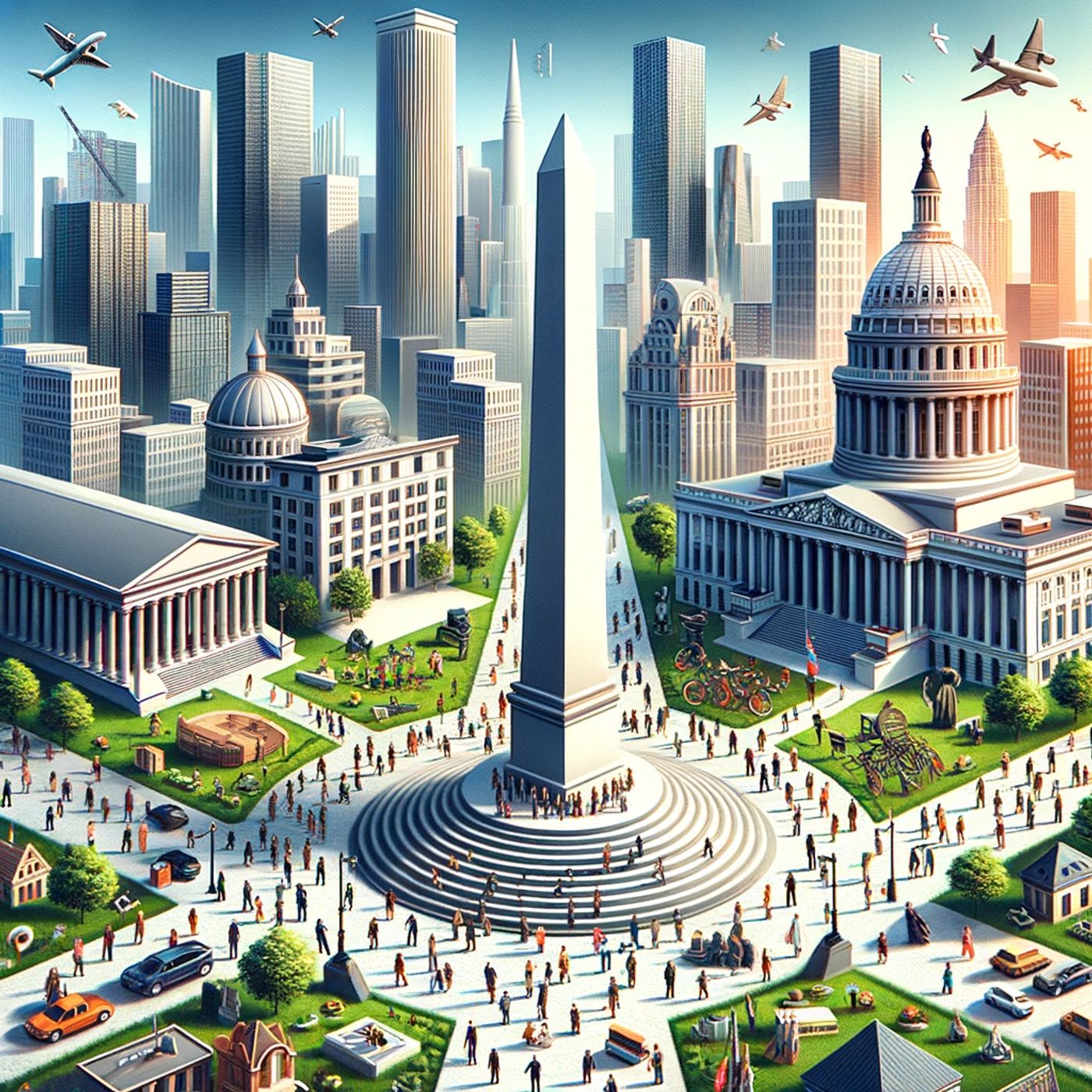Episode Details
Back to Episodes
The Evolving DC Job Market: Federal Shifts, AI Transformation, and Upskilling Priorities
Published 2 months, 3 weeks ago
Description
Washington, D.C.’s job market remains deeply shaped by federal presence, a strong professional services sector, and rapid technology evolution. The employment landscape in late 2025 is marked by stabilization following earlier volatility: according to the Peterson Institute for International Economics, unemployment and job openings softened from 2023 to 2024 but have steadied in 2025. The national unemployment rate climbed to 4.2 percent in August 2025, rising 0.6 percentage points over the previous year, with local patterns broadly matching national trends. D.C.’s major industries continue to be federal government, public administration, law, lobbying, technology, education, and healthcare, with large employers including federal agencies, defense contractors, top law firms, and rapidly expanding tech startups.
The most notable trend is the shift in workforce dynamics due to federal job insecurity amid recent government shutdowns, as reported by GovCIO Media & Research. The federal contracting community faces layoffs challenging retention and recruitment, with many public servants re-evaluating career prospects and talent pipelines being reworked to strengthen both public and private capacity. Artificial intelligence is quickly transforming work functions and employer priorities, driving investment and skill requirements across sectors; business investment was boosted 4 percent in 2025, especially in AI-related fields. The Labor Department’s latest talent strategy prioritizes industry-driven workforce upskilling, worker mobility, and flexible training systems, with special attention to AI readiness and durable human skills.
Seasonal hiring patterns remain relatively flat, with modest increases during congressional cycles and year-end federal budget activity. Remote and hybrid work trends are prominent, particularly among residents with higher education, according to D.C. Policy Center analysis. Long-range commuting persists from suburban Maryland and Virginia, accelerated by ongoing transit upgrades. Government initiatives focus on reskilling and grants prioritizing aerospace, infrastructure, and emerging tech, aided by partnerships between agencies and universities.
Recent developments include fluctuating global outlook and tighter immigration controls, which have contributed to labor market slack but not significantly changed supply-demand balance. Higher tariffs and trade uncertainties continue to create a volatile climate, with inflation remaining stubbornly above the Fed’s 2 percent target. Data gaps persist around granular city-specific unemployment rates and detailed breakdowns for small businesses, but trends match national patterns as small enterprises struggle to fill open positions.
Key findings show that D.C.'s labor market remains resilient yet increasingly dependent on advanced skills and technology adaptation. AI and federal policy changes are the key drivers of future growth, with talent pipeline evolution and upskilling efforts critical for both public and private sectors.
Current job openings in the area include an AI policy analyst with a federal agency, a software developer at a major consultancy, and a senior public engagement manager at a global NGO. Thanks for tuning in and don’t forget to subscribe. This has been a quiet please production, for more check out quiet please dot ai.
For more http://www.quietplease.ai
Get the best deals https://amzn.to/3ODvOta
This content was created in partnership and with the help of Artificial Intelligence AI
The most notable trend is the shift in workforce dynamics due to federal job insecurity amid recent government shutdowns, as reported by GovCIO Media & Research. The federal contracting community faces layoffs challenging retention and recruitment, with many public servants re-evaluating career prospects and talent pipelines being reworked to strengthen both public and private capacity. Artificial intelligence is quickly transforming work functions and employer priorities, driving investment and skill requirements across sectors; business investment was boosted 4 percent in 2025, especially in AI-related fields. The Labor Department’s latest talent strategy prioritizes industry-driven workforce upskilling, worker mobility, and flexible training systems, with special attention to AI readiness and durable human skills.
Seasonal hiring patterns remain relatively flat, with modest increases during congressional cycles and year-end federal budget activity. Remote and hybrid work trends are prominent, particularly among residents with higher education, according to D.C. Policy Center analysis. Long-range commuting persists from suburban Maryland and Virginia, accelerated by ongoing transit upgrades. Government initiatives focus on reskilling and grants prioritizing aerospace, infrastructure, and emerging tech, aided by partnerships between agencies and universities.
Recent developments include fluctuating global outlook and tighter immigration controls, which have contributed to labor market slack but not significantly changed supply-demand balance. Higher tariffs and trade uncertainties continue to create a volatile climate, with inflation remaining stubbornly above the Fed’s 2 percent target. Data gaps persist around granular city-specific unemployment rates and detailed breakdowns for small businesses, but trends match national patterns as small enterprises struggle to fill open positions.
Key findings show that D.C.'s labor market remains resilient yet increasingly dependent on advanced skills and technology adaptation. AI and federal policy changes are the key drivers of future growth, with talent pipeline evolution and upskilling efforts critical for both public and private sectors.
Current job openings in the area include an AI policy analyst with a federal agency, a software developer at a major consultancy, and a senior public engagement manager at a global NGO. Thanks for tuning in and don’t forget to subscribe. This has been a quiet please production, for more check out quiet please dot ai.
For more http://www.quietplease.ai
Get the best deals https://amzn.to/3ODvOta
This content was created in partnership and with the help of Artificial Intelligence AI